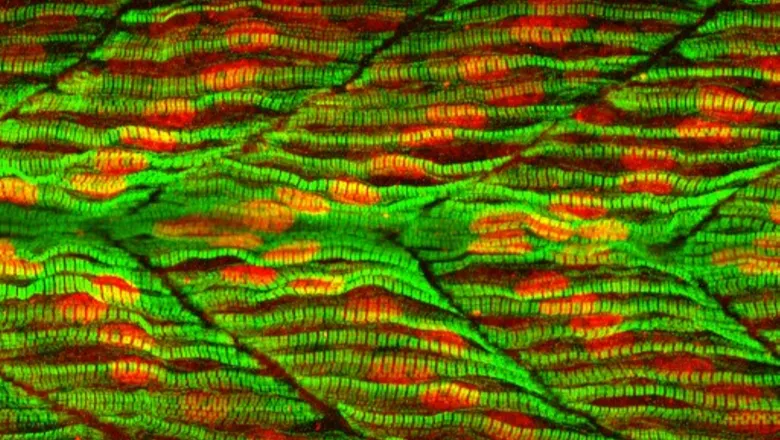I’m really thrilled about this project with our European partners and look forward to several years of exciting research and interactions. Understanding the structure and dynamics of the muscle sarcomere, the small molecular machines that power heart and skeletal muscles, at unprecedented detail will boost our understanding of fundamental muscle biology and allow analysing processes like ageing and muscle diseases with previously unknown insight.
Professor Mathias Gautel, Head of School of Basic & Medical Biosciences
15 October 2019
Team awarded millions to study muscle diseases and age-related muscle wasting
Researchers from King’s, in partnership with the Max Planck Institutes in Dortmund and Göttingen and the CNRS Institute of Developmental Biology, University Aix-Marseille, have been awarded 12 million euros by the European Research Council (ERC) to investigate the sarcomere.

The team of researchers have been awarded a Synergy Grant to determine the high-resolution structure of sarcomeres, the basic unit that makes up muscles. The structure of entire sarcomeres is unknown, yet a precise molecular understanding of how the entire sarcomere machine forms and functions are required to fully understand its role in health, disease and ageing.
While many sub-components are structurally and functionally characterised, muscle is more than the sum of these parts: its function is highly cooperative, and its structure is dynamic over time and space. This consortium of researchers, with the King’s team led by Professor Mathias Gautel and including Dr Yaniv Hinits, Randall Centre for Cell & Molecular Biophysics, will deploy an unparalleled complementary knowledge and technology base to address these fundamental and translational questions.
The group will solve the structure of the sarcomere at near-atomic resolution, unravel the fundamentals of its force-driven assembly and turnover in health and ageing, and develop the foundations for future basic and translational research including the design and development of new agents to mitigate muscle disease and ageing.
This award is one of 37 awarded by the ERC worth €363 million in total. These special grants will enable groups of two to four top researchers to bring together complementary skills, knowledge and resources in one research project to tackle some of the most complex research problems, often spanning multiple scientific disciplines.
This project is embedded in the already brilliant Muscle Biophysics section of the Randall Centre for Cell & Molecular Biophysics, who harness cutting edge biophysical methodology for their experiments in additional to conventional modern biological techniques.
The 37 ERC-funded projects involve 126 principal investigators who will carry out their projects at 95 universities and research centres in 20 countries across the European Research Area and beyond.
Carlos Moedas, European Commissioner for Research, Science and Innovation, said: “With each project gathering the complementary expertise of several ERC researchers, I am confident about the quality of the results of these free scientific endeavours. They are likely to open up new opportunities and equip us to deal with the challenges of the future.”
The President of the ERC, Professor Jean-Pierre Bourguignon, commented: “The results of this grant competition are further proof that the ERC is able to support excellent ideas and outstanding people wherever they may be located.
“This award highlights the crucial contribution that European research funding plays in supporting UK research, not only simply in monetary terms (the UK is a net beneficiary of EU research funding), but even more importantly, in fostering collaboration and exchange with excellent teams of complementary expertise. Each of us could not achieve what the interactions of this network will enable us to do” – Professor Gautel.


